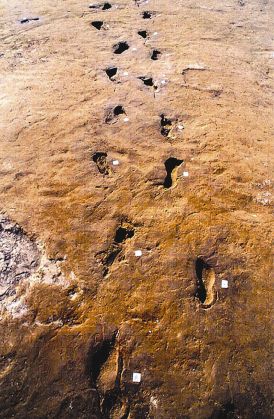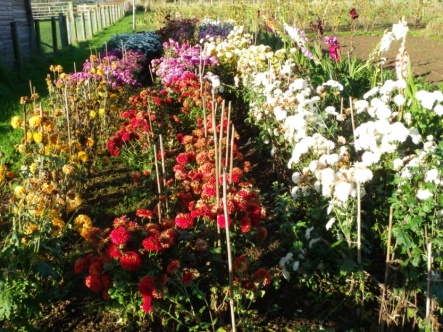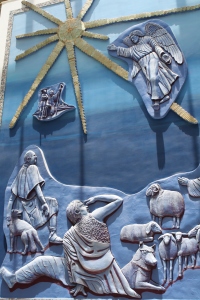During a long and boring but accident-prone print run this morning I happened to pick up a book helpfully left on the windowsill in our print room, a book of devotional thoughts from that great preacher C H Spurgeon. The book happened to fall open at July 3rd (today), which either means that someone else had just been devotional with it or God wanted to speak to me particularly. The verse for the day was, unpromisingly, Genesis 41:4:
‘And the cows that were ugly and gaunt ate up the seven sleek, fat cows.’
Spurgeon went on to explain this verse in terms of the fact that times of spiritual gauntness quickly ate up the spiritually more healthy times. When he stayed close to God he made great strides forward, but the odd off-day quickly undid all the good that the good days had achieved, and set him back on his quest for true Christlikeness. His aim, he explained, was to make sure that every day was a spiritual high, and not to let any bad days or seasons undo all that he had achieved so far.
You can kind of see what he means, but even reading the passage made me feel exhausted! I am still pondering whether or not a) he is right, and b) whether this is a helpful kind of approach to discipleship to preach and teach around the Diocese. To me, it comes dangerously close to salvation by works, something which I would have thought that Spurgeon of all people would want to avoid teaching. It makes discipleship hard work, which on one level it is, but on another it shouldn’t be, since the Jesus whom we follow has a burden which is light. It also seems to negate those times when, according to the Bible, suffering does us good. I have grown as much, if not more, through times of spiritual aridity than I have through the good years.
In any case, the definition of a disciple is someone who fails – you can see that again and again in the gospels. I’m not convinced that failure makes us slide back down the snake to square one: rather I think it can send us forward sadder but wiser. My God of infinite forgiveness doesn’t like to watch me fall, but when I do he is quick to restore, forgive and reinstate. So no pressure!










